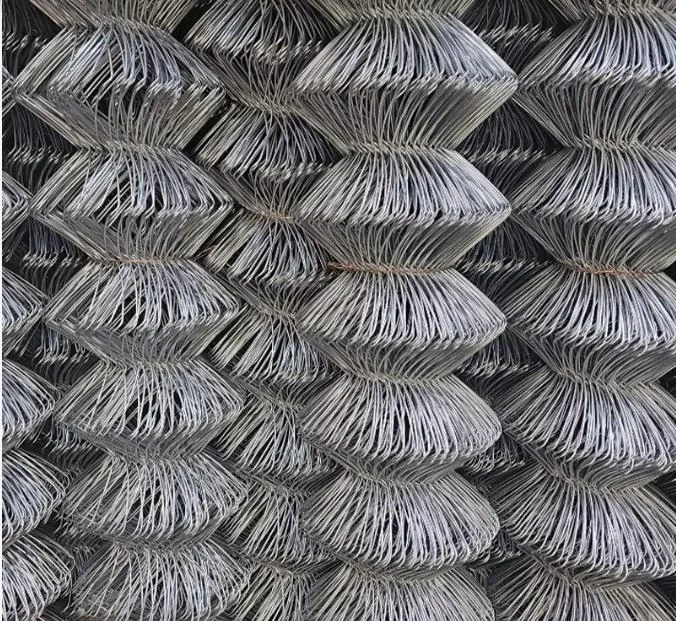-
 Phone:
Phone: -
 Email:
Email:

Does rebar tie wire corrode in different environmental conditions and impact structural integrity?
Does Rebar Tie Wire Rust?
When working on construction and engineering projects, one of the most essential components often overlooked is the tie wire used in conjunction with rebar (reinforcing bar). Rebar is a crucial element in reinforcing concrete structures, providing tensile strength and support. Tie wire, typically made from steel or other metal, is used to secure this rebar in place during the concrete pouring process. However, a common concern among engineers and contractors is whether rebar tie wire rusts and the implications of this rusting on construction integrity.
Understanding Rust
Rust is the result of a chemical reaction between iron, oxygen, and moisture in the environment. When the protective layer on metal surfaces is compromised, these elements can react, leading to oxidation. Over time, this process deteriorates the metal, causing structural weakness and potential failure. In the case of tie wire, which is predominantly made from steel, rusting becomes a significant concern, particularly in environments subject to moisture and varying temperatures.
The Composition of Tie Wire
Rebar tie wire generally comes in several grades and types, with the most common being black annealed wire and galvanized wire. Black annealed wire is subjected to a process that enhances its flexibility and resistance to breakage. However, it is not coated, which means it is more susceptible to rust when exposed to moisture. Conversely, galvanized wire is coated with a layer of zinc, providing a higher degree of protection against rusting. The choice between these types of tie wire often depends on the specific construction requirements and environmental conditions.
Factors Influencing Rusting
The propensity for rebar tie wire to rust can depend on several factors
1. Environmental Conditions Areas with high humidity, frequent rain, or the presence of salt (such as coastal regions) will accelerate the rusting process. Moisture facilitates the oxidation of iron, leading to rust formation.
2. Duration of Exposure The longer the tie wire is exposed to moisture and corrosive elements, the higher the likelihood of rust developing. If the tie wire is left in place for an extended period before the concrete is poured, it is more susceptible to rusting.
3. Coating and Treatment As mentioned, galvanized tie wire is designed to resist rust due to its zinc coating. In contrast, uncoated tie wire is prone to corrosion. The choice between these options can significantly affect the long-term performance and durability of the structure.
Impact of Rust on Construction
does rebar tie wire rust

Rusting of rebar tie wire can have various impacts on a construction project
- Structural Integrity Rust can weaken tie wire, potentially leading to failures in the rebar assembly. If tie wire breaks or loses its effectiveness due to corrosion, the rebar may move out of position, leading to compromised structural integrity in the finished concrete.
- Time and Cost If rust is detected after installation, repairs may be necessary, leading to increased labor costs and project delays. Inspecting materials and ensuring they are rust-free before installation can help avoid these issues.
- Safety Risks In severe cases where rust-damaged wire causes structural failures, the safety risks can be significant. Ensuring that only quality materials are used and that they are adequately protected against the elements is essential for maintaining safety on construction sites.
Preventative Measures
To mitigate the risks associated with rusting of rebar tie wire, several strategies can be employed
1. Choosing the Right Tie Wire Opting for galvanized wire when working in corrosive environments can significantly reduce the risk of rusting.
2. Minimizing Exposure Store and handle tie wire in a manner that minimizes exposure to moisture. Utilizing protective coverings or storing materials indoors can be effective.
3. Regular Inspections Conduct regular inspections of tie wire and rebar before installation. Spotting any signs of rust early can prevent potential issues down the line.
Conclusion
In summary, while rebar tie wire is essential for the structural integrity of reinforced concrete, it is susceptible to rust, particularly in challenging environmental conditions. Understanding the types of tie wire available, their susceptibility to corrosion, and implementing protective measures can greatly enhance the durability and safety of construction projects. By prioritizing these considerations, builders can ensure that their structures remain safe and sound for years to come.
-
Wire Mesh for Every Need: A Practical SolutionNewsJul.25,2025
-
Steel Fences: Durable, Secure, and Stylish OptionsNewsJul.25,2025
-
Roll Top Fencing: A Smart Solution for Safety and SecurityNewsJul.25,2025
-
Cattle Farm Fencing Solutions for Maximum SecurityNewsJul.25,2025
-
Affordable Iron Binding Wire SolutionsNewsJul.25,2025
-
Affordable Galvanized Wire SolutionsNewsJul.25,2025
-
Wire Hanger Recycling IdeasNewsJul.25,2025








